Gartner Magic Quadrant For WAN Edge Infrastructure: Cisco Loses Leader Position, Aruba Makes Its Debut
Gartner’s second Magic Quadrant for WAN Edge Infrastructure includes some notable shakeups for 2019—adding one new vendor and dropping two from last year.

Second Time Around
Gartner’s second Magic Quadrant for WAN Edge Infrastructure included some notable shakeups in the fast-moving SD-WAN market, including Aruba Networks, a Hewlett Packard Enterprise company, joining the quadrant, while one of the report’s Leaders out of the gate, Cisco Systems, fell into the Challenger space.
The SD-WAN market has presented an opportunity for large legacy networking vendors to flex their SD-WAN muscle, either through homegrown or acquired offerings. On the other hand, many startups have emerged onto the scene with their flexible and digestible SD-WAN offerings, giving customers many flavors to choose from.
Here are the vendors that made Gartner's Magic Quadrant for WAN Edge Infrastructure in 2019 as well as the research firm’s findings on each.

The Second Annual Report
Gartner defines wide-area network (WAN) edge infrastructure as providing network connectivity from distributed enterprise locations to access resources in both private and public data centers, as well as the cloud, via Infrastructure as a Service and Software as a Service.
This year, HPE’s Aruba Networks was added thanks to a new product offering that met the research firm’s inclusion criteria. Cato Networks, on the other hand, was dropped after failing to meet inclusion criteria based on Gartner’s assessment and data provided by the vendor, as was Forcepoint for the same reasons, Gartner said in its 2019 report.

Leader: Silver Peak
Santa Clara, Calif.-based Silver Peak hit the space ahead of other major SD-WAN vendors, giving the company a strong understanding of the market. Silver Peak’s Unity EdgeConnect SD-WAN appliances come in physical, virtual and cloud form factors, with optional Unity Boost WAN optimization and Unity Orchestrator, which is available on-premises or in the cloud. Silver Peak’s SD-WAN products are available from a wide range of partners today, including MSPs.
Silver Peak SD-WAN products today lack a native full advanced security suite and rely on third-party firewalls or cloud security services, Gartner said.
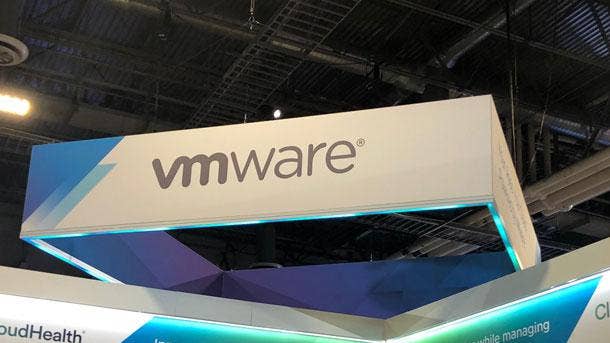
Leader: VMware
A leader for the second year running, VMware's acquisition of top SD-WAN player VeloCloud has made it tough to beat, according to Gartner.
The Palo Alto, Calif.-based company’s SD-WAN offering features a wide range of deployment options for edge devices, which can be physical or virtual with optional cloud gateways and orchestration. The offering can be cloud-based, MSP-hosted or cloud-hosted. VMware’s SD-WAN offering can fulfill large, complex global networks of more than 1,000 sites, Gartner said. However, VMware, like Silver Peak, doesn’t have native advanced security functionality and today is relying on partner firewalls instantiated on its platform or cloud security services, according to the research firm.
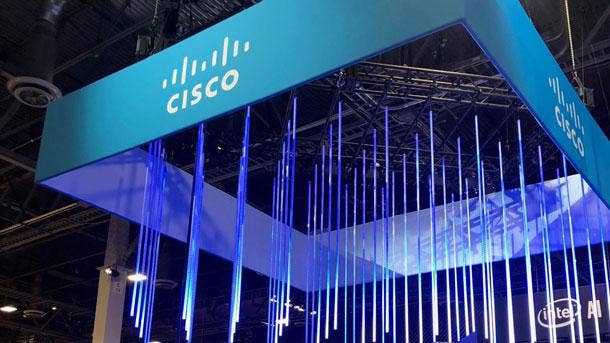
Challenger: Cisco Systems
Cisco this year slipped from the Leader quadrant into the Challenger position, which Gartner attributed to some reliability and scalability issues reported by end customers and channel partners.
San Jose, Calif.-based Cisco is providing its flagship SD-WAN offering through its Viptela business, as well as an offering powered by Meraki appliances for leaner IT organizations. Gartner cautioned that the company's "broad, separate and overlapping SD-WAN offerings" don’t share a common management platform, hardware platform or sales teams, which can create difficulty for customers and partners when choosing the appropriate offering. The report found that Cisco's strengths lie in its broad range of features complementary to SD-WAN, such as security, LAN and WLAN and application performance.
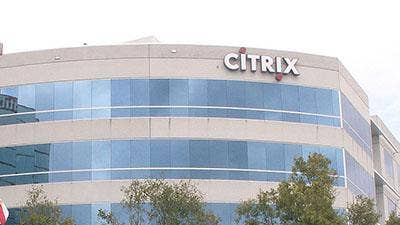
Challenger: Citrix Systems
Desktop virtualization leader Citrix's flagship SD-WAN appliances come in physical, virtual and cloud form factors and can be managed via the Citrix SD-WAN Center.
Fort Lauderdale, Fla.-based Citrix’s offering is cloud-managed and provides optional, fully featured WAN optimization, which includes an optional cloud gateway service for cloud on-ramp capabilities. While Citrix offers some native security functionality, its SD-WAN offering is lacking a full, advanced security suite beyond its native application layer firewall and relies on partners for unified threat management or cloud security services, Gartner said.
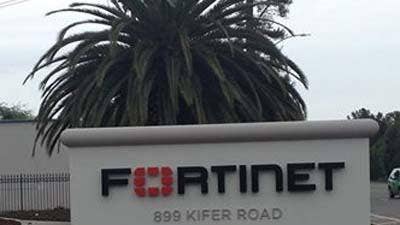
Challenger: Fortinet
Network security powerhouse Fortinet is offering SD-WAN through its FortiGate SD-WAN firewall appliance. The Sunnyvale, Calif.-based company's ability to deliver an integrated offering consisting of SD-WAN, routing, advanced security and application performance is giving the company a leg up over the competition with broad market and use case appeal for customers of all sizes, Gartner said. The company's global channel is helping it support both do-it-yourself and managed services adopters.
However, Gartner said that despite its enterprise-class features, Fortinet’s products have been used mainly as security appliances and less as networking offerings, so it has limited experience in the SD-WAN market.

Challenger: Huawei
China-based telecom and networking heavyweight Huawei is addressing the WAN edge market with its CloudWAN, NetEngine AR series of routers, and the AR series uCPE devices. The NetEngine AR routers are available as an appliance, the AR1000 NFV, and as virtual appliances on Amazon Web Services, Microsoft Azure and Huawei Public Cloud.
A dominant vendor in China, Huawei has experience and proven scale with extremely large deployments and its broad portfolio includes full SD-WAN flexible deployment form factors, a capable integrated security stack and basic WAN optimization. Gartner said, however, that geopolitical factors and security concerns by North America, including a possible restriction, may severely limit adoption and availability.

Visionary: Aryaka
Privately held Aryaka differentiates itself in the increasingly crowded SD-WAN market by providing an all-in-one managed offering on its private backbone called SmartConnect.
The SD-WAN offering includes WAN optimization and the San Mateo, Calif.-based company's private global backbone provides direct cloud gateways. Aryaka may not be a good fit for customers that take a do-it-yourself approach to networking, or for very small or very large customers, Gartner said. Aryaka also supports only internet and Ethernet connections to its services, which limits hybrid SD-WAN configurations and can make migrations from MPLS more complex, according to the research firm.
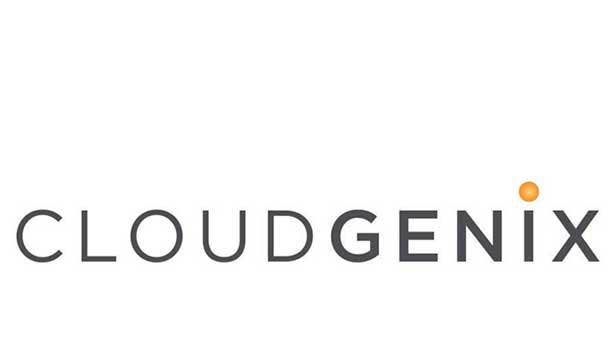
Visionary: CloudGenix
San Jose, Calif.-based startup CloudGenix is offering its flagship Instant-On Network (ION) devices, which support SD-WAN functionality, as well as basic firewalling capability. ION appliances are available in both hardware and software form factors and also exist in the Amazon Web Services and Microsoft Azure marketplaces.
CloudGenix is also providing its Clarity offering that delivers visibility into network health and application performance. While CloudGenix supports a wide range of routing and network topologies, it doesn't offer WAN optimization or native advanced security, Gartner said. CloudGenix also has limited geographic reach and tends to be adopted by more do-it-yourself-focused customers, according to Gartner.
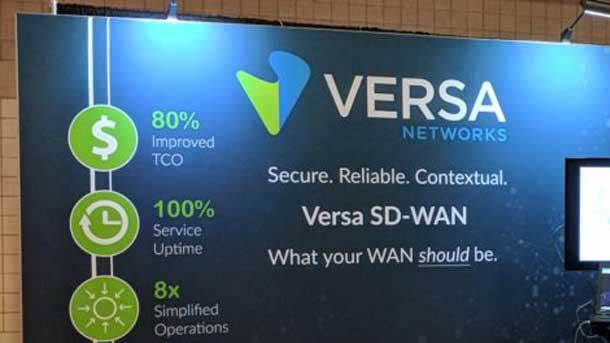
Visionary: Versa Networks
A visionary once again this year, privately held Versa has a strong focus on combining SD-WAN with other branch networking functions, including routing and security. Gartner expects Versa to focus on its midmarket offering and SMB customers through its Versa Titan offering, which delivers an SD-branch offering that integrates routing, SD-WAN and security for LAN and WAN connectivity.
Versa has strong relationships with cloud providers and managed service partners as its primary go-to-market route.
Gartner said Versa lacks native WAN optimization and relies on hosting third-party virtual appliances. Versa also isn't geared toward do-it-yourself customers, according to the research firm.
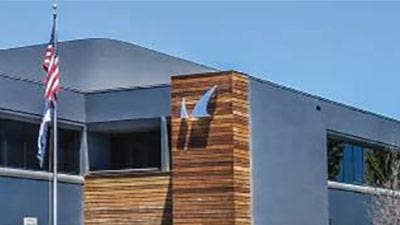
Niche Player: Barracuda Networks
Barracuda Networks once again found itself in the Niche Player category this year and leverages its prior experience in selling security products as a basis for delivering SD-WAN functionality to its flagship CloudGen Firewall offering, Gartner said.
Campbell, Calif.-based Barracuda aims primarily at the SMB sector and offers broad capabilities, including SD-WAN with enterprise-grade features and WAN optimization and real-time traffic remediation. Like other smaller companies in the report, Gartner said Barracuda has limited visibility and awareness in the SD-WAN market.

Niche Player: Cradlepoint
NetCloud is Cradlepoint's flagship WAN edge offering, which includes routers, appliances, management and support delivered as a managed service.
The Boise, Idaho-based company has deep knowledge of the wireless networking market and is bringing its expertise in providing cost-effective small branch solutions to the SD-WAN market. Its offering is attractive for deployments in which integrated security, WAN edge and Wi-Fi functionality is required, Gartner said. The research firm said the vendor has a lack of cloud provider support beyond Amazon Web Services, as well as the lack of availability on cloud marketplaces, which could be a detriment to enterprises expanding their cloud presence.

Niche Player: Fatpipe Networks
Salt Lake City-based FatPipe Networks is best known for pioneering path selection technology, which has become an important capability for SD-WAN. Today, FatPipe offers a broad array of WAN products including secure routers, load balancers and WAN optimization appliances. Its flagship WAN edge offering is the FatPipe SD-WAN.
Privately held 18-year-old FatPipe has a broad set of capabilities and has deployed its SD-WAN products across multiple industries. However, FatPipe has limited market presence outside North America and still has limited visibility in the SD-WAN market, according to Gartner.

Niche Player: Aruba, a Hewlett Packard Enterprise company
HPE's Aruba Networks made the cut on this year's WAN Edge Infrastructure Magic Quadrant and is emerging onto the scene as a Niche Player thanks to the company repositioning itself from a predominantly leading wired LAN and WLAN vendor to a WAN edge vendor through its SD-Branch offering.
Aruba's SD-WAN offering combines switching, WLAN, WAN and security in a simplified, fully orchestrated and scalable offering.
The vendor has had recent success in winning large WAN edge enterprise accounts, Gartner found. However, Aruba still has limited application performance capabilities for real-time traffic, according to Gartner.
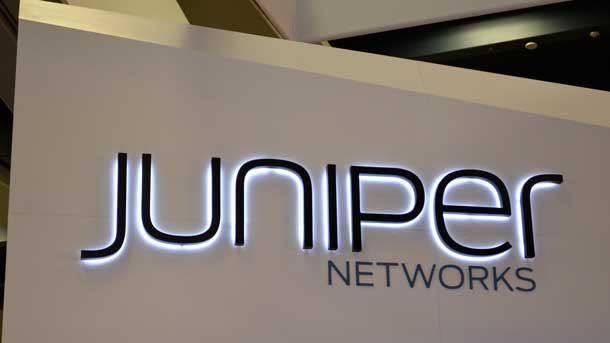
Niche Player: Juniper Networks
Sunnyvale, Calif.-based Juniper was late to the market, but the established networking and security provider today provides Contrail SD-WAN, its flagship WAN edge offering that is made up of its SRX Series Services Gateways—physical, virtual and cloud—and Contrail Service Orchestration.
Juniper right now is focused on incorporating its Mist Systems acquisition into its offering to provide more LAN/WLAN/WAN integration, which will help customers simplify orchestration and management. However, Gartner said that many of Juniper’s target service providers have already gone with Juniper’s competitors for SD-WAN.
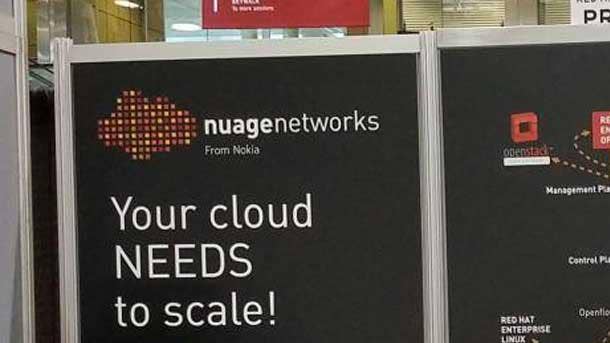
Niche Player: Nuage Networks
Sitting squarely in the Niche Player quadrant, Nuage, which is owned by Nokia, has a number of WAN edge capabilities including provisioning, control, management and automation.
The Mountain View, Calif.-based company is helped by close ties to communications service providers to deploy its SD-WAN as a Service. Gartner said that the Nuage SD-WAN products are architected for software deployment on NFV platforms, which allows them to integrate easily with other virtual network software. Nuage's offering does not include any WAN optimization functionality to support non-real-time traffic, however, and the company has a very small enterprise install base, Gartner said.

Niche Player: Oracle (Talari Networks)
Talari last year found itself in the Niche Player category and landed in the same quadrant this year, now that it has been acquired by Oracle as of late 2018.
Redwood City, Calif.-based Oracle rebranded Talari's fail-safe SD-WAN to Oracle SD-WAN, which offers comprehensive support for application analytics, path selection and active real-time traffic mitigation.
Under Oracle, the SD-WAN offering is benefiting from a strong partner network and enterprise experience. However, Oracle has limited experience deploying SD-WAN with networks greater than 250 branches and the offering lacks a native advanced security stack, Gartner said.
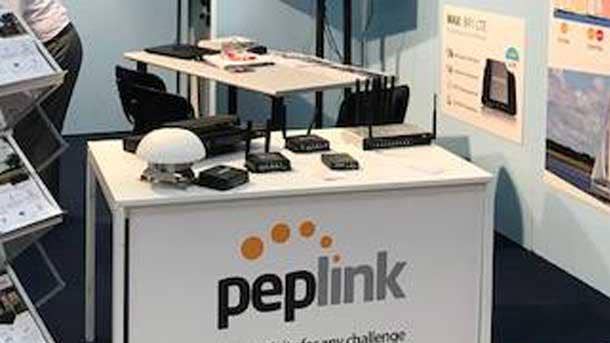
Niche Player: Peplink
Peplink, a small, Hong Kong-based vendor, is coming to the market with a variety of WAN products including Balance and Max, which deliver wired and wireless SD-WAN.
Peplink has proven scalability in large, distributed deployments with more than 5,000 sites, Gartner found. While Peplink has experience providing LTE-based connectivity as part of its SD-WAN functionality, it has limited application analytics. The company today is leaning heavily on its limited channel partnerships at all levels of the sales and support cycle, Gartner said.

Niche Player: Riverbed
Privately owned Riverbed this year moved into the Niche Player quadrant and out of the Challenger space. The vendor comes to the SD-WAN market with extensive experience in the WAN space and today is providing its flagship WAN edge offerings—SteelConnect and SteelHead SD— which both support SD-WAN with WAN optimization in a single, integrated appliance.
Gartner said that Riverbed has substantial experience in large global enterprises and recently unveiled an OEM agreement with Versa Networks to deliver scalable routing, SD-WAN and advanced security to better address large enterprise needs. However, Gartner said Riverbed is the only vendor in its research that will be sourcing core SD-WAN functionality via an OEM agreement.
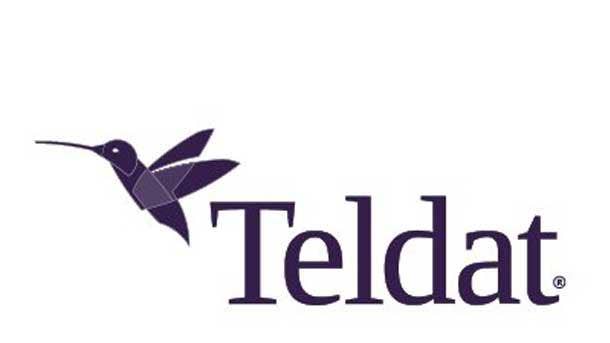
Niche Player: Teldat
Hailing from Spain, privately held communications vendor Teldat is offering a broad range of voice and data products, including LAN, WAN, WLAN and voice. Its flagship WAN edge offering is the Teldat M8 Smart, an SD-WAN edge gateway, and the Cloud Network Manager controller.
Teldat is offering a management console as an over-the-top service, which is helping customers simplify operations. Gartner said that while Teldat has a strong presence in Europe and Latin America, it has limited experience outside those geographies and with enterprises that take a do-it-yourself approach.